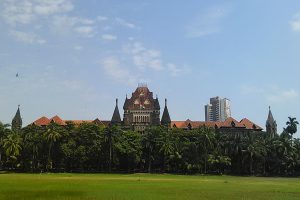Bombay High Court: R.D. Dhanuka, J., held that relinquishment of properties held by the legal heirs of a person whose properties were self-acquired properties would enure only for those persons in whose favour such deed of relinquishment was executed.
The First Appeal was filed under Section 96 of the Code of Civil Procedure, 1908.
Respondents (original plaintiffs) case was that the suit properties were the self-acquired properties of Late Shripad Pandit who was the grandfather of the respondents. The said properties were purchased in the name of Late Smt. Usha was the wife of Shripad Pandit and the grandmother of the respondents.
Appellants (original defendants) are the uncles of the respondents (original plaintiffs). Father of the respondents expired and after his death, the mother of the respondents who were defendant 4 got re-married.
Respondents stated that the deceased Usha Pandit and Shripad Pandit had four sons and four daughters. After their demise, each son and daughter had 1/8th share therein. Sisters of appellant1 to 3 relinquished their undivided share in the suit property by a registered release deed and thus had no right, title and interest of any nature in the suit property.
Trial Judge declared that the appellants and respondents 1 to 3 were having 1/4th share each in units/apartments reserved for their joint family. It was further held that respondents 1 to 3 (original plaintiffs) are entitled for partition, separate possession of their 1/4th share in the suit property. Court restrained the appellants permanently from creating third party interest to the extent of 1/4th share of respondents 1 to 3 in the suit property and directed that partition of 1/4th share of respondents 1 to 3 effected by appointing Court Commissioner and separate possession of their share be given to them.
In view of being affected with the trial court judgment, appellants filed the present appeal.
Analysis and Decision
A perusal of the judgment and decree passed by the Trial Court indicates that the trial Court though had rendered a finding that the suit properties were inherited by the parties had rendered perverse finding that the suit properties were co-parcenary properties and release deed executed by the sisters of the appellants were for the benefit of all the members of the family and not only the appellants.
Trial Judge strongly placed reliance on the judgment of the Andhra Pradesh High Court in the case of M. Krishna Rao v. M. L. Narasikha Rao, 2003 SCC OnLine AP 526 & L. Sundaram and Ravichandran v. Lakshmanana (died)2003 (1) Mh. LJ. 195, held that relinquishment of the right and interest by the daughters of Shri Shripad Pandit and Usha was in favour of the entire family and not in favour of the appellants only.
Co-Parcenary & Not Self Acquired | Erroneous
Trial Judge erroneously proceeded on the premise that the Deed of Release by four daughters of Shripad Pandit in favour of the appellants were co-parcenary properties and not his self-acquired properties.
Bench relied on the decision of the Supreme Court in Kishore Tulshiram Mantrim v. Dilip Jank Mantri, Second Appeal No. 374 of 2018 decided on 14-8-2018 and opined that the suit properties were self-acquired properties of the deceased Shripad Pandit, all the legal heirs of the said deceased were entitled to equal share including the four daughters of the said deceased who were sisters of the appellants. The daughters of the said deceased thus were free to relinquish their undivided share in the suit property in favour of the other legal heirs of the said deceased exclusively.
Relinquishment of properties inherited by the legal heirs of the person whose properties were self-acquired properties would not enure for the benefit of all the legal heirs of the said deceased but would enure only for those persons in whose favour such deed of relinquishment/release was executed.
In the present matter, Trial Judge erroneously applied the principles applicable to the relinquishment of undivided share by a coparcener in favour of another coparcener to the properties inherited by the legal heirs of a deceased whose properties were self-acquired.
A perusal of the release deed which was produced on record in evidence executed by the four daughters of the said deceased i.e. Pushpalata, Bharti, Hemlata and Varsha clearly show that they had released all their undivided share right, title and interest in the suit property in favour of the appellant exclusively. Hence respondents 1 to 3 would be entitled to only 1/8th share in the suit property and not 1/4th share. [Shashikant Shripad Pandit v. Kaustubh Subhash Pandit, 2020 SCC OnLine Bom 309, decided on 25-02-2020]
Advocates before the Court:
Girish R. Agrawal for the appellants.
Jaydeep Deo for the respondents 1 to 3

